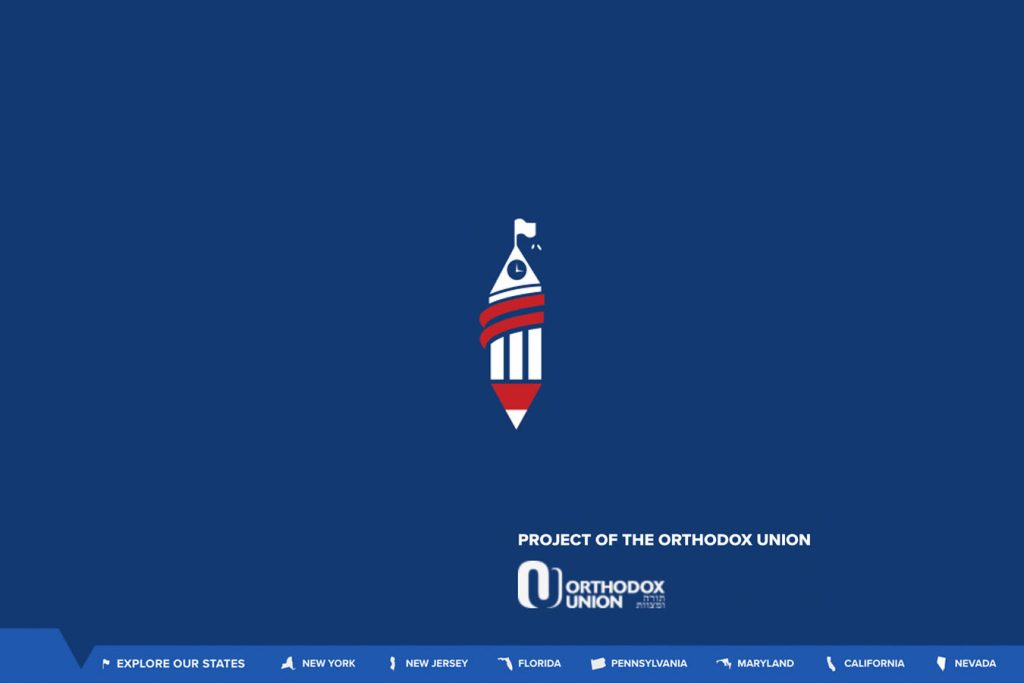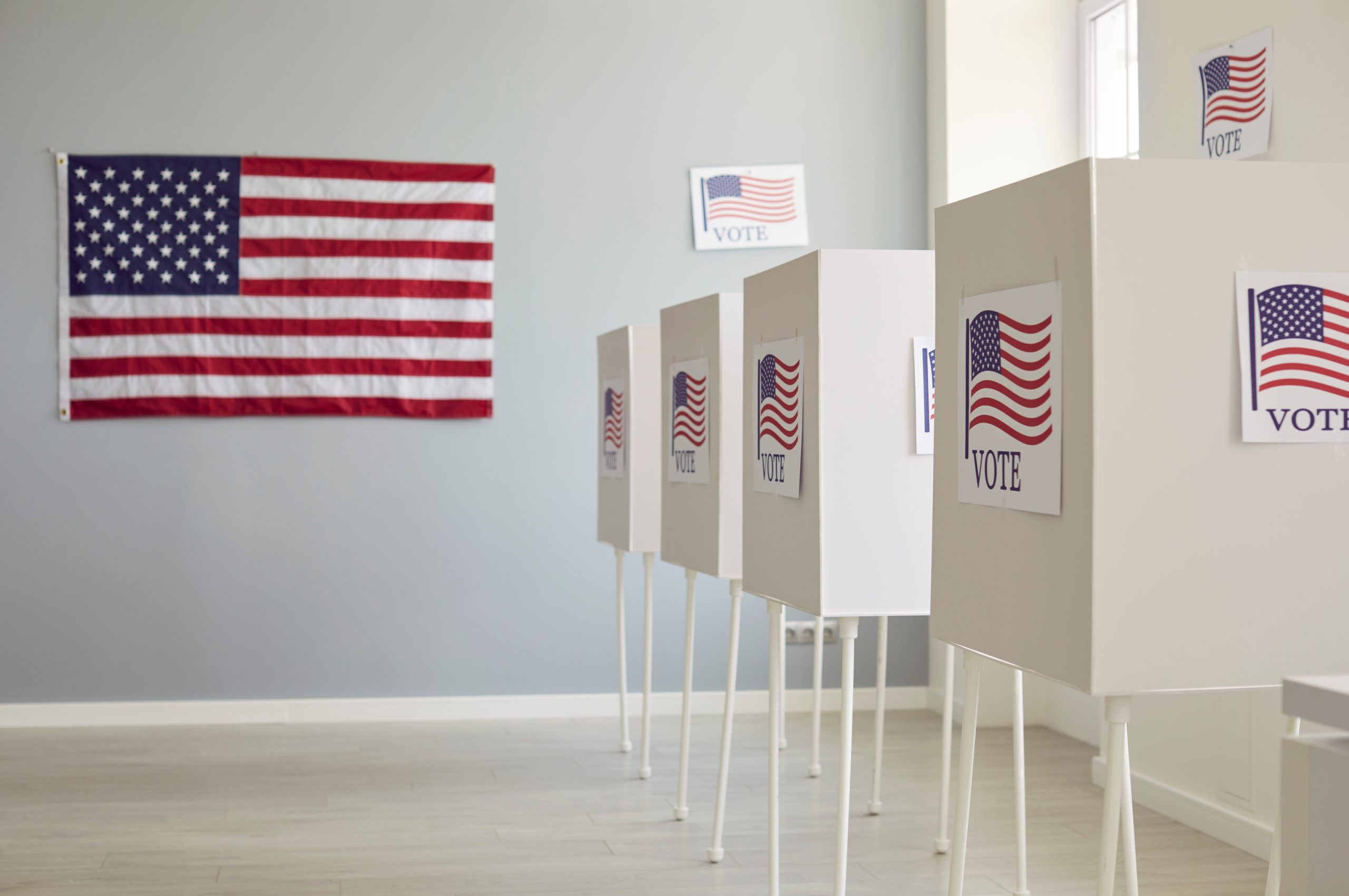Most of us learned the basics about the election process here in the USA when in school. Primaries, General Elections, Democrats, Republicans, local government, national government – we studied it all for the finals and then filed it away. And when we grew up, we registered to vote. Some of us vote regularly, sometimes just for president. And some not at all.
But many of us don’t understand the nuance of what a voting bloc means to politicians. We think – my one vote doesn’t matter. When was the last time someone was elected based on one vote?
A few months ago, we were invited to go down to the OU offices to hear about some of their programs beyond the kashrus organization. I was the one who was able to go that day. And when the ladies from Teach Coalition shared about why every vote is so important, it finally made sense to me. And while I don’t get very invested in following politics, I realized that I can no longer let an Election Day pass by without stopping by the polls to vote.
Right now, the political climate is very charged. We need to use our votes. Every single vote can make a difference.
But I can’t explain it as well as the professionals can, so we turned to Teach Coalition/OU and asked them to do it for us. Please take the time to read and understand – and make sure to vote!
– Esti Waldman
As the National Director of Teach Coalition, I’ve witnessed firsthand the profound impact that local and state elections have on our community. From securing vital funding for our schools to ensuring the safety of our institutions, the decisions made in these elections shape our daily lives. This is especially true in areas with large frum populations like the tri-state, where Jewish voters have the power to shape outcomes, our voice at the ballot box is more crucial than ever.
Safeguarding Quality Jewish Education
For generations, Jewish education has been the cornerstone of our continuity. But it’s not enough to simply open the doors of a yeshiva—they must stay open, fully supported, and within reach for every Jewish family.
In New York among some other areas, our advocacy has helped deliver hundreds of millions of dollars in government support, funding critical programs like STEM and school security for nonpublic schools, which includes our yeshivas and day schools. The leaders we elect at the state and local levels determine whether that support expands, shrinks, or vanishes altogether. That’s what’s on the line in these elections.
Security Is Not Optional
Since October 7th, antisemitic incidents have skyrocketed. In 2023 alone, the FBI reported 11,862 hate crimes in the U.S.—twice the number from just a decade ago.
As threats rise, so do the security needs of our schools, shuls, and other institutions. A recent Teach Coalition survey found that the average Jewish school is now spending 84% more on security than it did before October 7th.
These are not abstract concerns. These are real, growing costs that are falling directly on our communities. But they shouldn’t be. The leaders we elect will decide whether that burden is eased or made worse. Local and state officials play a critical role in funding security grants and programs that help protect our children and families.
Building a Communal Voting Voice
When you vote, politicians take note. Time and again, I’ve seen meetings with elected officials denied simply because a constituent hadn’t voted—yes, they check.
Our vote is our voice. If we don’t use it, we silence ourselves.
Elected officials respond to the communities that show up. When we stay home, we give up our seat at the table. But when we vote, we don’t just participate, we gain the power to advocate from a position of strength.
A Time for Vision and Action
In my first interview as National Director, I said: “The continuity of the Jewish people relies on Jewish education.” I still believe that deeply.
But today, I would add this: “The future of our ability to provide that education to all who seek it depends on who we elect.”
These upcoming elections will determine whether our values are represented in city halls, statehouses, and beyond.
What You Can Do Now
- Make a plan to vote – too often, people don’t vote simply because they haven’t planned ahead.
- Get Involved– help mobilize Jewish voters by getting involved with organizations such as Jewish Voters Unite at jewishvotersunite.org.
In Closing
In a letter dated October 3, 1984, Rav Moshe Feinstein wrote:
“A fundamental principle of Judaism is hakaras hatov — recognizing benefits afforded us and giving expression to our appreciation. Therefore, it is incumbent upon each Jewish citizen to participate in the democratic system… The most fundamental responsibility … is to register and to vote.”

As a community rooted in Torah and committed to the well-being of our children, we must treat every election as an obligation, not an option. The decisions being made now in these current elections, as well as upcoming elections, will shape the future of our schools, our security, and our values. Let’s ensure those decisions are made with us, not without us. When we show up at the ballot box, we don’t just cast a vote, we fulfill a mitzvah, protect our future, and make our voices heard.
Sydney Altfield
National Director, Teach Coalition
teachcoalition.org




Leave a Reply